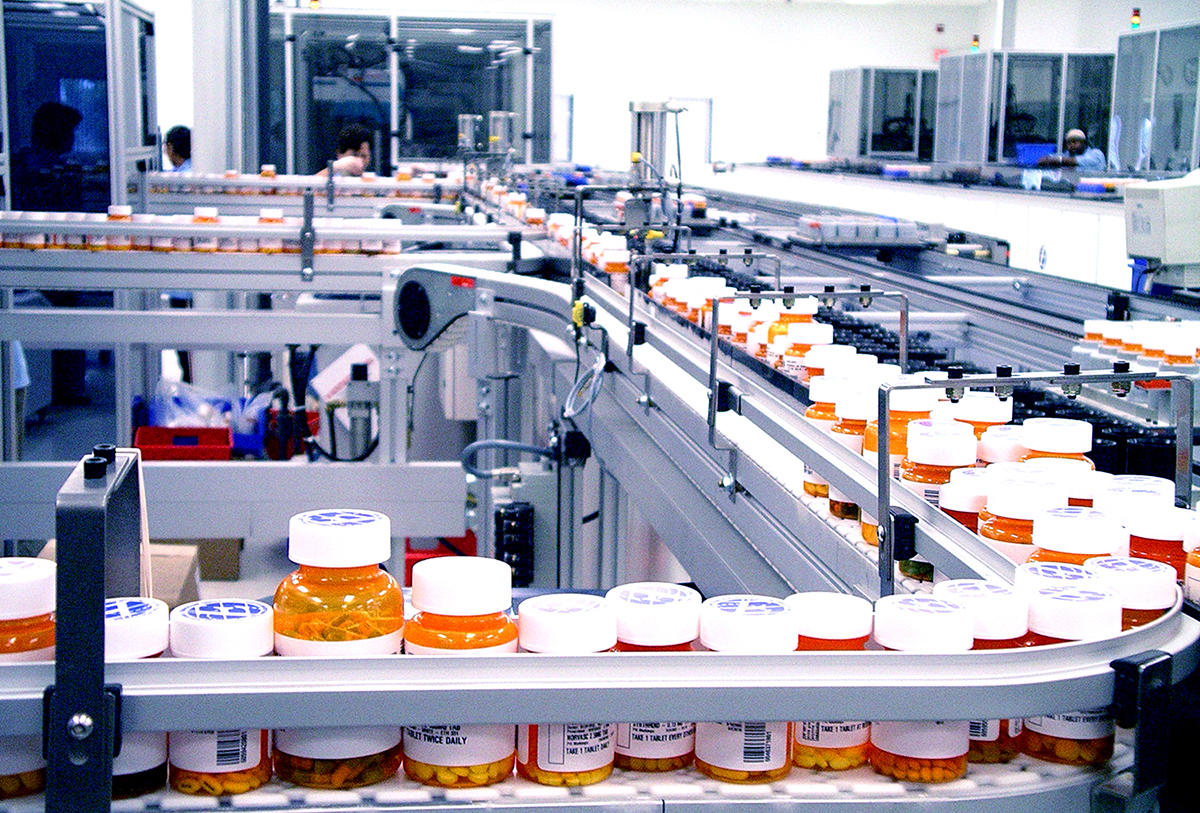With more than ten thousand dollars at stake, student teams competed in the first-ever Project of the Year Symposium, hosted by The Boeing Center for Supply Chain Innovation (BCSCI), on May 17 at Washington University. The BCSCI symposium featured the top five corporate mini-consulting projects executed via our Center in the 2016-2017 academic year. The top prize, $5,500, for Best Project of the Year was awarded to the Emerson team. A second award, $3,000, was given to the Belden team for a project that demonstrated the greatest immediate business impact. A third award. $2,000, was given to the Monsanto team for delivering the best presentation. All winning teams will be inducted into the Boeing Center Projects Hall of Fame.
 Each student team had 15 minutes in front of a panel of judges composed of BCSCI advisory board members and representatives.
Each student team had 15 minutes in front of a panel of judges composed of BCSCI advisory board members and representatives.
While all of our project teams (a total of 15 corporate projects) did an excellent job this year, these five demonstrated a particularly high level of execution, which set them apart. We are grateful to all of our member companies for providing us with interesting and challenging projects, and to all the students who worked on Boeing Center projects this year.
A special thanks goes out to our judges and board members in attendance: Greg Krekeler (Boeing), Mike Woerner (Edward Jones), Eric Carlson (Emerson), Marcelle Pires (Monsanto), Becky McDonough (Monsanto), and of course our own Sergio Chayet (WashU) and Panos Kouvelis (WashU & BCSCI Director). We look forward to developing more innovative supply chain solutions in the fall semester!
Representing this academic year’s projects in the competition were:

ABI student team: Serena Chen, Xinyue Du, Marcus Lei, Yanyan Li, and Cauthen Mordente.
Anheuser-Busch InBev | Fall 2016
The Anheuser-Busch InBev team’s project revolved around optimizing the inventory mix at distribution centers for some of ABI’s craft beer products. The need to achieve shipping efficiency by shipping full truckloads is a challenge when lower volume craft beers are involved. It is also important to maintain high service levels of performance when delivering to wholesalers.
The team utilized simulation models to support either the use of higher inventory levels at the distribution center, or shipping lower volume and higher volume beers on the same truck to achieve higher service levels for craft beers.
Belden | Spring 2017

Panos Kouvelis with Belden student team: Bonnie Bao, Michael Stein, Yuying Wang, and Yuyao Zhu.
The award for the “Greatest Immediate Business Impact,” with impressive overall cost savings to the company, was given to the Belden team.
The Belden team used the continuous review modeling approach, together with concepts of ABC analysis and market uncertainty, to identify opportunities for lowering costs and improving service levels at PPC, a Belden subsidiary in Syracuse, NY. The proposed decision support spreadsheet will be immediately implemented by the company, and will result in substantial savings. This project delivered the most immediate business impact.
 Boeing | Spring 2017
Boeing | Spring 2017
Student team: Vineet Chauhan, Phil Goetz, Brian Liu, Sontaya Sherrell, and Fan Zhang.
The Boeing team’s goal was to determine the most influential order and part characteristics affecting suppliers’ on-time delivery statistics of Boeing’s transactional spare parts business.
Emerson | Spring 2017
Student team: Kushal Chawla, Serena Chen, Kai Ji, Jeffrey Lantz, and Zoe Zhao, pictured at top of page.
The judges determined that the Emerson team had delivered the best overall project performance (problem solution, business impact, and presentation), and was declared “Project of the Year” winner. The Emerson project team worked with ProTeam’s Richmond Hill facility to determine the optimal product mix, optimize inventory management of stock, and develop a data analysis model to facilitate future upkeep of the system. This was a well-executed project, with rigorous analysis and strong presentation by the team.
Monsanto | Spring 2017

Student team: Hai Cao, Yanyan Li, Ashwin Kumar, Jonathan Neff, Tom Siepman, and Xukun Zan.
Finally, the Monsanto team’s goal was to understand, define, and map out the credit processes within Monsanto. The audience enjoyed this team’s excellent presentation. The Monsanto team impressed the judges with the quality of its work and its exceptional presentation, and received the “Presentation Excellence” award.
Boeing Center Symposium photo gallery • click here
For more supply chain digital content and cutting-edge research, check us out on the socials [@theboeingcenter] and our website [olin.wustl.edu/bcsci]
• • •
A Boeing Center digital production

Supply Chain // Operational Excellence // Risk Management
Website • LinkedIn • Subscribe • Facebook • Instagram • Twitter • YouTube
 John Stroup, President and CEO of Belden Inc., paid a visit to The Boeing Center to share his wealth of knowledge, and to give a brief history of Industry 4.0, aka the Smart Factory. He explained that Industry 4.0, a term coined in Germany, is the fourth major iteration in manufacturing processes. “‘Smart Manufacturing,’ ‘Intelligent Factory,’ and ‘Factory of the Future’ all describe an intelligent, flexible, and dynamic production facility, where machinery and equipment will have the ability to improve processes through self-optimization and autonomous decision-making,” said Stroup. The major improvements from 3.0 to 4.0 are the ability to automate complex tasks (even remotely) and the access to data across the whole supply chain that allows for greater flexibility and connectivity.
John Stroup, President and CEO of Belden Inc., paid a visit to The Boeing Center to share his wealth of knowledge, and to give a brief history of Industry 4.0, aka the Smart Factory. He explained that Industry 4.0, a term coined in Germany, is the fourth major iteration in manufacturing processes. “‘Smart Manufacturing,’ ‘Intelligent Factory,’ and ‘Factory of the Future’ all describe an intelligent, flexible, and dynamic production facility, where machinery and equipment will have the ability to improve processes through self-optimization and autonomous decision-making,” said Stroup. The major improvements from 3.0 to 4.0 are the ability to automate complex tasks (even remotely) and the access to data across the whole supply chain that allows for greater flexibility and connectivity.



 Each student team had 15 minutes in front of a panel of judges composed of BCSCI advisory board members and representatives.
Each student team had 15 minutes in front of a panel of judges composed of BCSCI advisory board members and representatives.

 Boeing | Spring 2017
Boeing | Spring 2017





